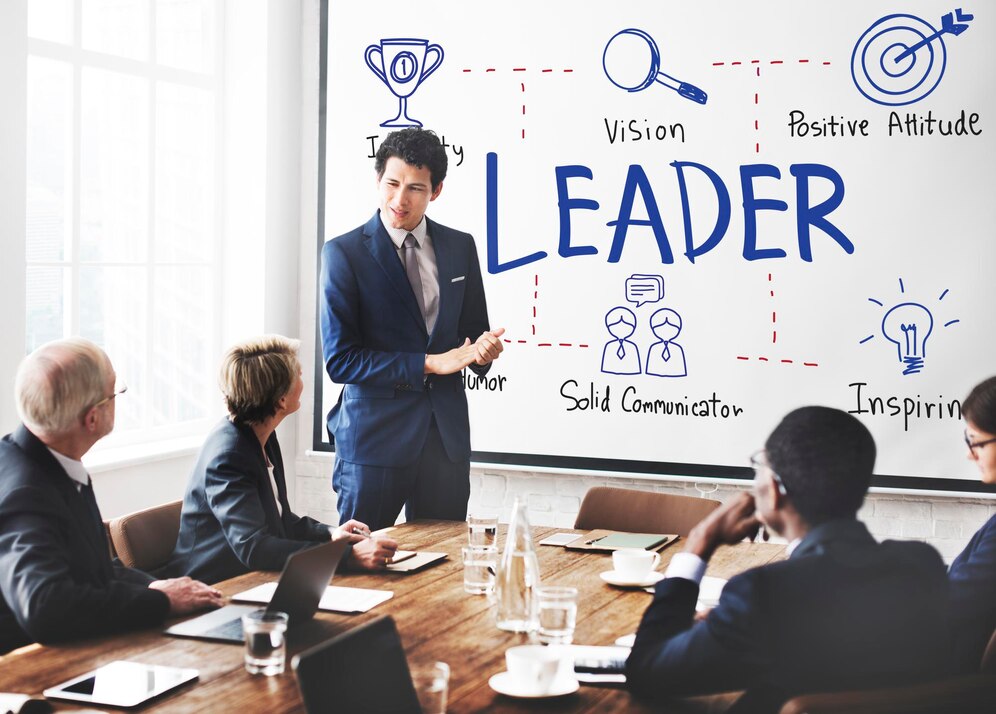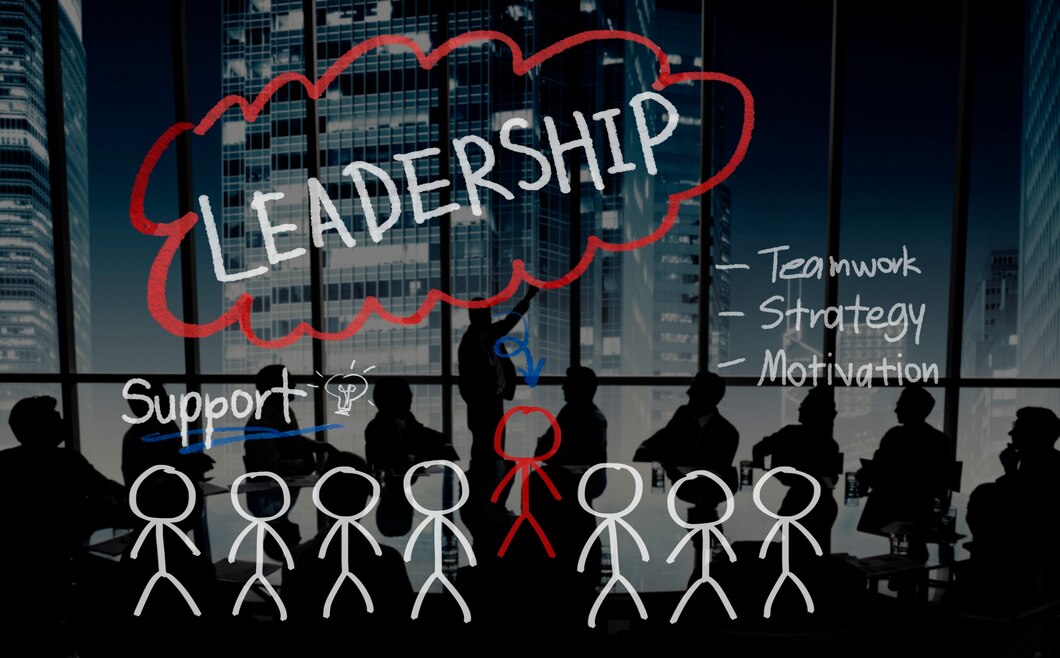Table of Contents
Leadership Development
Leadership development refers to the process of enhancing an individual’s ability to lead, guide, and influence others. It involves acquiring and honing skills, knowledge, and experiences that contribute to effective leadership. Leadership development is essential for fostering a pipeline of capable leaders who can drive organizational success and adapt to changing environments.

What Are the Leadership Development Skills?
focuses on a variety of skills crucial for effective leadership. These skills What Are the Leadership Development Skills?include:

Communication
The ability to convey ideas clearly and listen actively. Effective communication builds trust and facilitates collaboration.
Emotional Intelligence
Understanding and managing one’s emotions and empathizing with others. This skill is vital for building strong relationships and handling conflicts.
Decision-Making
The ability to make informed and timely decisions. Good leaders analyze information, consider alternatives, and take decisive action.
Strategic Thinking
The capacity to think long-term, envision future possibilities, and develop plans to achieve organizational goals.
Problem-Solving
Identifying issues and developing effective solutions. This involves critical thinking and creativity.
Adaptability
The ability to remain flexible and resilient in the face of change and uncertainty.
Team Building
The skill to build and lead high-performing teams, fostering a collaborative and inclusive environment.
Conflict Resolution
Effectively managing and resolving conflicts to maintain a positive and productive workplace.
How is Leadership Developed?
is a continuous process that involves various approaches:
-
Formal Education
Degree Programs:
Advanced degrees in business, management, or leadership studies provide theoretical and practical knowledge.
Certifications:
Leadership certification programs offer specialized training in leadership principles and practices.
-
Training and Workshops
In-House Training:
Organizations often conduct internal leadership training sessions tailored to their specific needs.
External Workshops:
Participation in leadership seminars and workshops led by experts in the field.
-
Mentoring and Coaching
Mentorship:
Experienced leaders guide and support emerging leaders, sharing their knowledge and insights.
Coaching:
Professional coaches provide personalized guidance to help leaders develop specific skills and achieve their goals.
-
On-the-Job Experience
Job Rotation:
Exposure to different roles and departments to gain a broad perspective of the organization.
Special Projects:
Leading or participating in projects that challenge and develop leadership capabilities.
-
Self-Development
Reading:
Books, articles, and research papers on leadership and management.
Networking:
Engaging with other leaders and professionals to share experiences and learn from one another.
What are the Components of Leadership Development?
Effective consist of several key components:
Assessment
Evaluating an individual’s current leadership skills and identifying areas for improvement.
Goal Setting:
Establishing clear and achievable leadership development goals.
Development Plan:
Creating a structured plan that outlines the steps and resources needed to achieve the goals.
Learning Opportunities:
Providing access to training, workshops, and educational resources.
Feedback and Evaluation:
Regularly assessing progress and providing constructive feedback.
Support and Resources:
Ensuring access to mentors, coaches, and necessary tools.
Leadership Development Programs
Leadership development programs are structured initiatives designed to cultivate leadership skills within an organization. These programs can vary in scope and duration but typically include:

Leadership Training:
Courses and workshops focused on essential leadership skills and knowledge.
Executive Coaching:
One-on-one coaching sessions with experienced leaders or professional coaches.
Mentorship Programs:
Pairing emerging leaders with seasoned mentors for guidance and support.
Development Assignments:
Assigning leaders to challenging roles or projects to gain practical experience.
Feedback Mechanisms:
Implementing 360-degree feedback systems to provide comprehensive evaluations.
Why is Leadership Development Important?
Leadership development is crucial for several reasons:
Ensures Continuity:
Prepares a pipeline of capable leaders to ensure smooth transitions and continuity within the organization.
Enhances Performance:
Effective leaders drive higher productivity, employee engagement, and organizational success.
Fosters Innovation:
Leaders who are well-developed can inspire creativity and innovation within their teams.
- Improves Retention: Investing in leadership development demonstrates a commitment to employee growth, enhancing job satisfaction and retention.
- Adaptability: Strong leaders can navigate and lead their organizations through change and uncertainty.
Develop Leaders at Your Organization
To develop leaders within your organization, consider the following steps:
- Identify Potential Leaders: Recognize employees with leadership potential through performance evaluations and feedback.
- Create a Leadership Development Plan: Develop a structured plan tailored to the needs and goals of your potential leaders.
- Provide Training and Resources: Offer access to leadership training programs, workshops, and educational materials.
- Foster a Mentoring Culture: Encourage experienced leaders to mentor and support emerging leaders.
- Encourage Continuous Learning: Promote a culture of continuous improvement and self-development.
- Evaluate and Adjust: Regularly assess the effectiveness of your leadership development efforts and make necessary adjustments.
In conclusion, leadership development is a vital investment for any organization aiming to achieve long-term success. By focusing on developing essential leadership skills, providing diverse learning opportunities, and fostering a supportive environment, organizations can cultivate effective leaders who can navigate challenges and drive growth.







